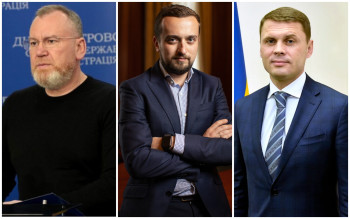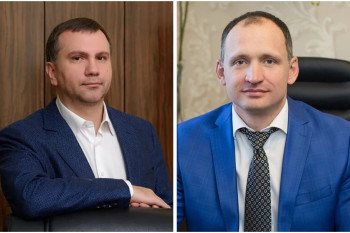The U.S. has created a working group to detect corruption in its aid to Ukraine, according to a document from the Office of the Inspector General of the U.S. Agency for International Development (USAID).
The document, titled “Strategic oversight plan for assistance to Ukraine,” was posted on the USAID website on Jan. 18, and states that the U.S. Congress has allocated more than $113 billion in aid to Ukraine, delivered through 11 different state bodies and institutions.
The Ukraine Oversight Interagency Working Group comprises inspectors from the Pentagon, State Department, USAID, and other departments of the U.S. government. It meets monthly to “coordinate, collaborate, and ensure transparency in the collective whole-of-government Ukraine response oversight efforts,” the document said.
The USAID also urged “timely and transparent reporting of misconduct affecting the United States’ support to Ukraine and its people.”
Posters in English and Ukrainian with instructions on confidentially reporting misconduct have been published.
“Allegations of retaliation by contractors or grantees against employees who report misconduct affecting U.S. funding will be thoroughly investigated,” the agency said.
On Jan. 26, the U.S. Under Secretary of State Victoria Nuland said that the U.S. had its auditors working in Ukraine alongside the World Bank and Deloitte consultants to make sure that “no aid or weapons are diverted.”
Her statement came days after yet another corruption scandal broke out in Ukraine.
On Jan. 23, the National Anti-Corruption Bureau of Ukraine (NABU) said that it had begun investigating possible corruption in the Defense Ministry’s food procurement.
The statement followed an investigation by Ukrainian news outlet ZN.UA, which alleged that the Defense Ministry was buying food for soldiers at inflated prices, indicating a possible corruption scheme. The ministry denied the accusations.
However, the recent corruption scandals do not appear to have involved the humanitarian aid supplied to Ukraine by the United States, State Department spokesperson Ned Price said on Jan. 24.
Amid several corruption scandals, President Volodymyr Zelensky on Jan. 24 launched the biggest government reshuffle since the beginning of Russia’s full-scale invasion in February 2022.
Some saw the reshuffle as an effort by Zelensky to clean house but critics argued that the reshuffle is a result of political infighting, not a genuine anti-corruption drive, since some notorious top officials accused of corruption are notably missing from the list of those fired.
Those who keep their jobs include Zelensky's notorious Deputy Chief of Staff Oleh Tatarov, who was charged with bribery in 2020.












